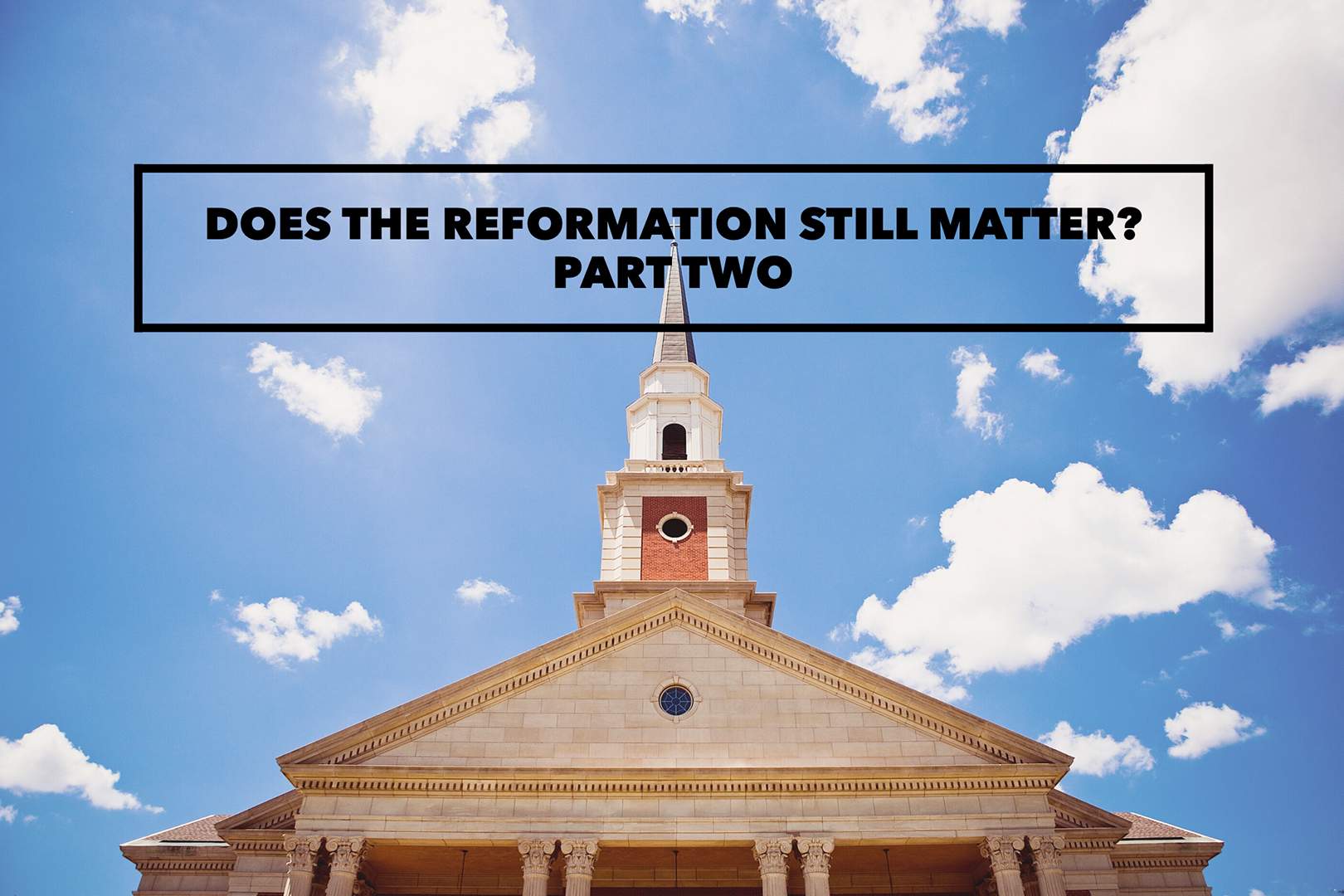
Does The Reformation Still Matter? Part Two
 *In celebration of the 5ooth anniversary of the Protestant Reformation: This is part two of a three-part series on why the Reformation still matters today.
*In celebration of the 5ooth anniversary of the Protestant Reformation: This is part two of a three-part series on why the Reformation still matters today.
———–
Who comes to your mind when you think about the Reformation? Martin Luther? John Calvin? Maybe a few others if you’ve studied this time in church history. While these men are important and deserve to be remembered and studied, their true legacy was demonstrating the Word of God is living and active (Hebrews 4:12).
As I was learning about the Reformation – specifically about the women who joined in the movement – I was struck by the depth of resolve that marked their lives. At a time when their beliefs, truly, were a matter of life and death, these women stood firm on Biblical orthodoxy. Their conviction transformed the direction of their lives. Learning about the lives of those who have gone before us, we can be encouraged to live our lives in a way that reflects the same Holy Spirit that lives inside us.
Women Of The Reformation
One of the most outspoken women of the Reformation was Katherina Zell. Though always interested in spiritual matters, it wasn’t until after she read Luther’s tracts that she became confident in her salvation. The result of this newfound confidence was to devote her life to sharing the gospel and demonstrating God’s mercy to others. Her home was a rest stop for traveling Reformers and Protestant refugees, a place of warmth, welcome, conversation, and provision. Katherina had a heart for the wives of displaced Protestant leaders, as well as anyone who was hurting or sick. She penned tracts and wrote letters full of Scriptures and reminders of the character of God. She knew only this could make a “yoke light in the spirit, though not in the flesh.” Our lives and homes can also reflect the mercy of the gospel. By ministering to the needs of those who are hurting, we remember the true rest and encouragement that comes through the Word of God.
Elisabeth Cruciger was sent away to a nunnery at a young age, but escaped after hearing the gospel preached by John Bugenhagen, a former priest turned Reformed pastor. She ran away to Wittenberg where she lived with the Bugenhagen family until she met and married her husband. She was a beloved wife, mother, and friend. She was also the first female poet and hymn writer of the Reformation. Her hymn, “The Only Son from Heaven,” can still be found in Lutheran hymnals to this day and beautifully captures the distinction between Law and Gospel. In the same way, we too can worship God as we learn about His character and respond in ways that reflect His creativity.
At only 19 years of age, Lady Jane Grey was crowned Queen of England. She was then dethroned and accused of treason by Queen Mary I and sentenced to death by beheading. Hoping to spare her life, Mary sent priests to meet with Lady Jane to try and convince her to renounce Protestantism and embrace the Roman Catholic Church. The conversations between Lady Jane and Master de Feckenham, Abbot of Westminster, were focused on the sufficiency of Scripture, salvation by grace alone and the meaning of the Lord’s Supper. Feckenham found her to be respectful and secure in her faith and the truths of the Bible, and the conversations ended with Feckenham accompanying Jane to the executioner. It was here she died as she had lived; quoting Scripture and holding resolutely to the truth that God is sovereign. Her last words were, “I here die a true Christian woman and I trust to be saved by the blood of Christ, and by no other means.” I pray that we too, would be so changed by the true gospel that we would face whatever comes our way with secure footing, knowing the One who is our foundation.
Learning From The Reformers
The lives and deaths of the women of the Reformation were transformed by the pure gospel of grace as taught in Scripture. It can be easy to think of these women and their lives as very different from our own, but we have the same Author and Perfecter of our faith, and the same Holy Spirit living inside us. Learning about the men and women of the Reformation can encourage us with the necessity and practicality of knowing and studying theology. We can show the same resolve, hospitality, conviction, steadfastness, mercy, and creativity as those who went before us.
